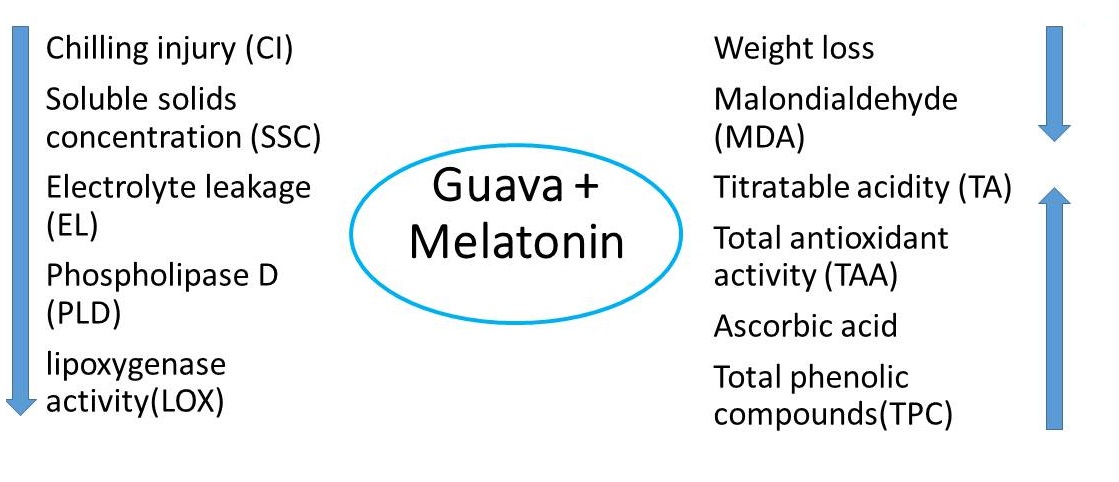
Published 2022-02-13
Keywords
- Abiotic stress,
- membrane integrity,
- tropical fruit
How to Cite
Abstract
Guava fruit is a tropical fruit thus sensitive to the chilling injury. In this study the effects of melatonin (known to protect membrane integrity and to help to face abiotic and biotic stress) is evaluated for reduction of chilling injury during postharvest. Guava fruits were dipped into 10, 100 and 1000 μmol L-1 melatonin solutions, then kept at cold storage (10±1°C and 90% relative humidity) for 21 days. Several parameters including chilling injury, malondialdehyde content, electrolyte leakage and increased total phenolic compounds and antioxidant activity, phospholipase D and lipoxygenase activity were measured after treatment. Measurements were made every 7 days during the storage. Results showed that melatonin decreased chilling injury, malondialdehyde content, electrolyte leakage and increased total phenolic compounds and antioxidant activity compared to the control. Also, results indicated that chilling injury of guava fruit by using melatonin decreased through increasing integrity of membrane and reducing phospholipase D and lipoxygenase activity. Thus, melatonin can be a useful treatment for decreasing postharvest chilling disorder of guava fruit.





